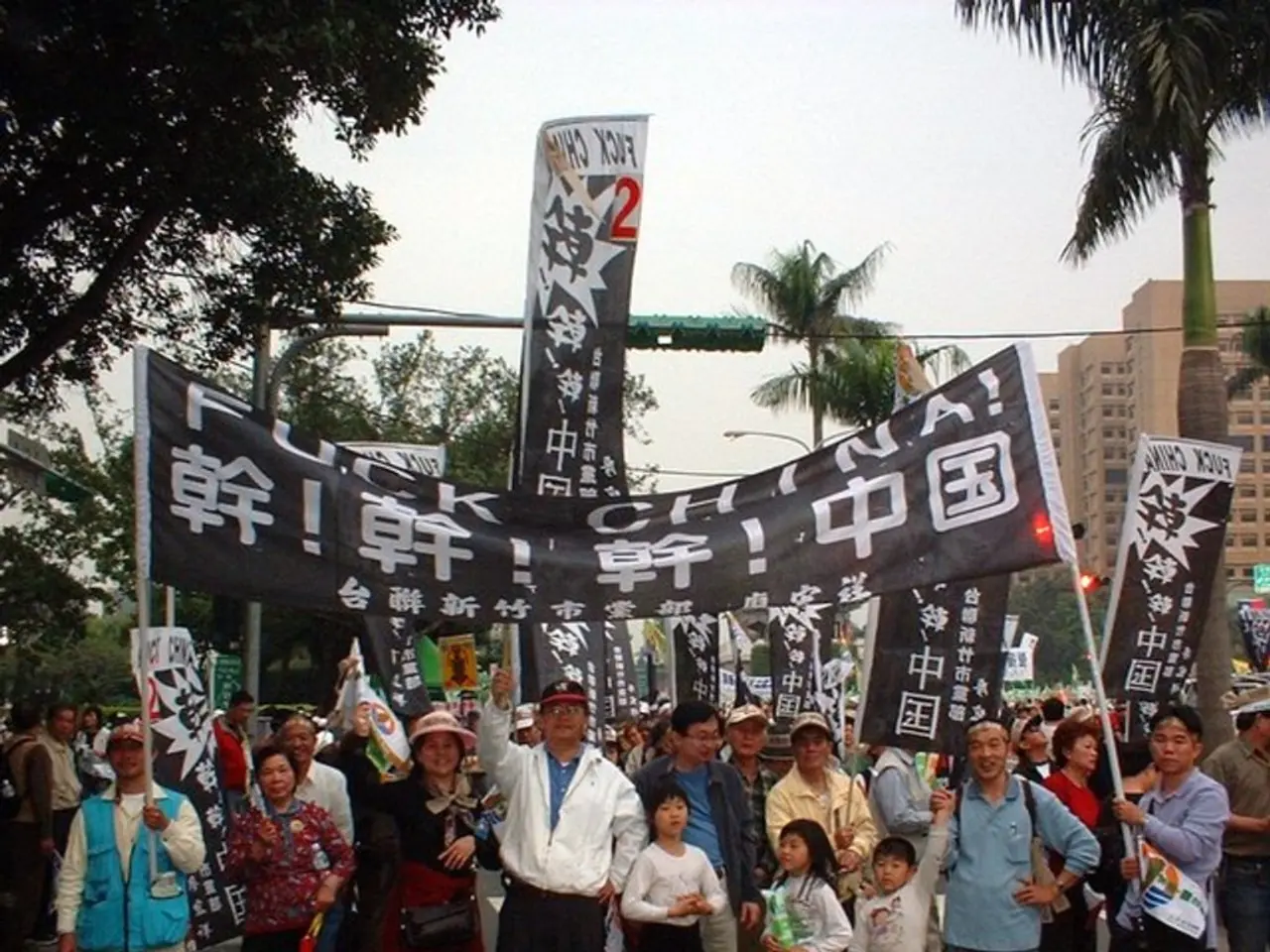EU-US Customs Duties Negotiations: MEP Dieynaba Diop from PS des Yvelines inquires about the specifics of the president's negotiations and those of his camp regarding customs duties between the EU and the US.
In the realm of international trade, French officials have expressed strong criticism towards the recent EU-US tariff agreement, viewing it as a concession to U.S. President Donald Trump. French Prime Minister François Bayrou described the deal as a "dark day" for the EU, stating it as a capitulation rather than a defense of European interests.
Emmanuel Macron, the French President, took a firm stance, advocating for a measured retaliation against U.S. tariffs. He suggested applying equivalent tariffs on U.S. imports, particularly in the services sector where the U.S. has a trade surplus with the EU. However, the final deal reflected a more conciliatory approach to prevent a trade war, as prioritized by other key members like German Chancellor Friedrich Merz and Italian Prime Minister Giorgia Meloni, who have greater economic dependence on the U.S. market.
In domestic news, the Zucman tax has been a topic of discussion. The tax, which targets the wealthiest, aims to ensure everyone makes an effort. However, some, such as socialist deputy Diop, question what Macron and his camp have negotiated to avoid an unfavorable agreement within the European Union. Diop, along with other deputies like Raphael Glucksmann, Nora Mebarek, and Chloe Ridel, have expressed opposition to certain agreements.
Diop, while sharing Macron's assessment, criticized his lack of influence in the decision-making process. The French socialists, including Diop, have been against the agreement and previously denounced it, as well as the Mercosur agreement. Despite this, Diop announced that a motion of censure against Ursula von der Leyen at the European level has no chance of success. Instead, Diop suggested discussing with deputies to influence the European Union and applying existing measures, rather than just depositing a motion of censure.
The speaker also emphasized the need for consistency in finding savings, with a focus on avoiding cuts to the pockets of those who are poorest or most in need. The speaker indicated that they will vote for the motion of censure, but did not mention any specific deputies or political parties in this regard.
Macron, in a statement, expressed his concern, saying, "We are not feared enough." This sentiment seems to underpin the ongoing debates in both international trade and domestic tax policies. As these discussions continue, it remains to be seen how France will navigate these complex issues moving forward.
- The ongoing debates in international trade and domestic tax policies, such as the criticism towards the EU-US tariff agreement and the discussion about the Zucman tax, can be categorized under general news and policy-and-legislation.
- French political figures like Emmanuel Macron, François Bayrou, and socialist deputy Diop have shown varying degrees of criticism towards certain international trade agreements, indicating a deep involvement in the politics of trade and policy-making.






